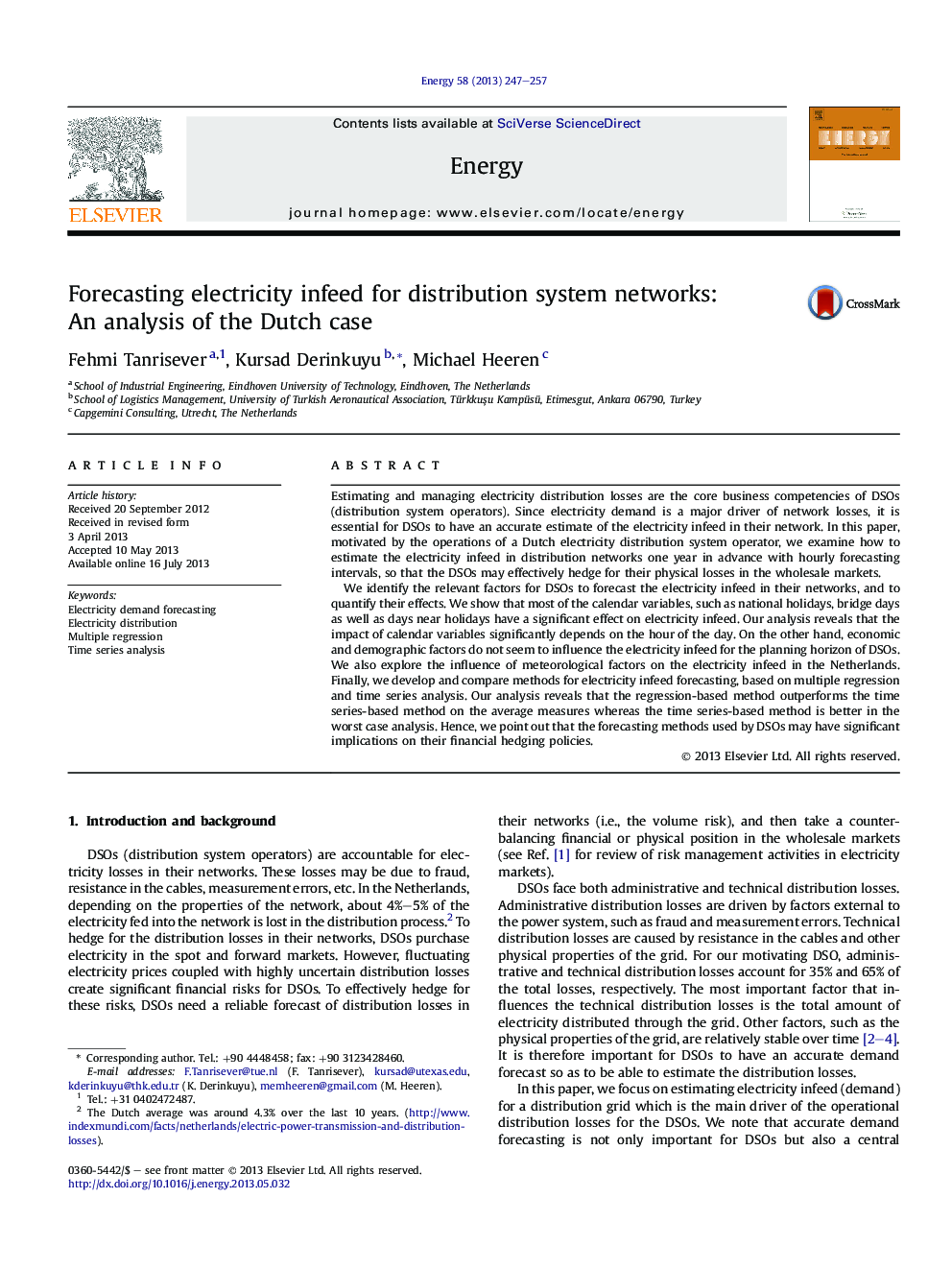| Article ID | Journal | Published Year | Pages | File Type |
|---|---|---|---|---|
| 1732887 | Energy | 2013 | 11 Pages |
•Identified the relevant factors for electricity infeed forecasting for DSOs.•Developed a method for mid-term electricity demand forecasting with hourly intervals.•Compared regression- and time series-based methods for electricity infeed forecasting.•Pointed out that the forecasting methods may have significant implications on DSOs hedging policies.
Estimating and managing electricity distribution losses are the core business competencies of DSOs (distribution system operators). Since electricity demand is a major driver of network losses, it is essential for DSOs to have an accurate estimate of the electricity infeed in their network. In this paper, motivated by the operations of a Dutch electricity distribution system operator, we examine how to estimate the electricity infeed in distribution networks one year in advance with hourly forecasting intervals, so that the DSOs may effectively hedge for their physical losses in the wholesale markets.We identify the relevant factors for DSOs to forecast the electricity infeed in their networks, and to quantify their effects. We show that most of the calendar variables, such as national holidays, bridge days as well as days near holidays have a significant effect on electricity infeed. Our analysis reveals that the impact of calendar variables significantly depends on the hour of the day. On the other hand, economic and demographic factors do not seem to influence the electricity infeed for the planning horizon of DSOs. We also explore the influence of meteorological factors on the electricity infeed in the Netherlands. Finally, we develop and compare methods for electricity infeed forecasting, based on multiple regression and time series analysis. Our analysis reveals that the regression-based method outperforms the time series-based method on the average measures whereas the time series-based method is better in the worst case analysis. Hence, we point out that the forecasting methods used by DSOs may have significant implications on their financial hedging policies.
